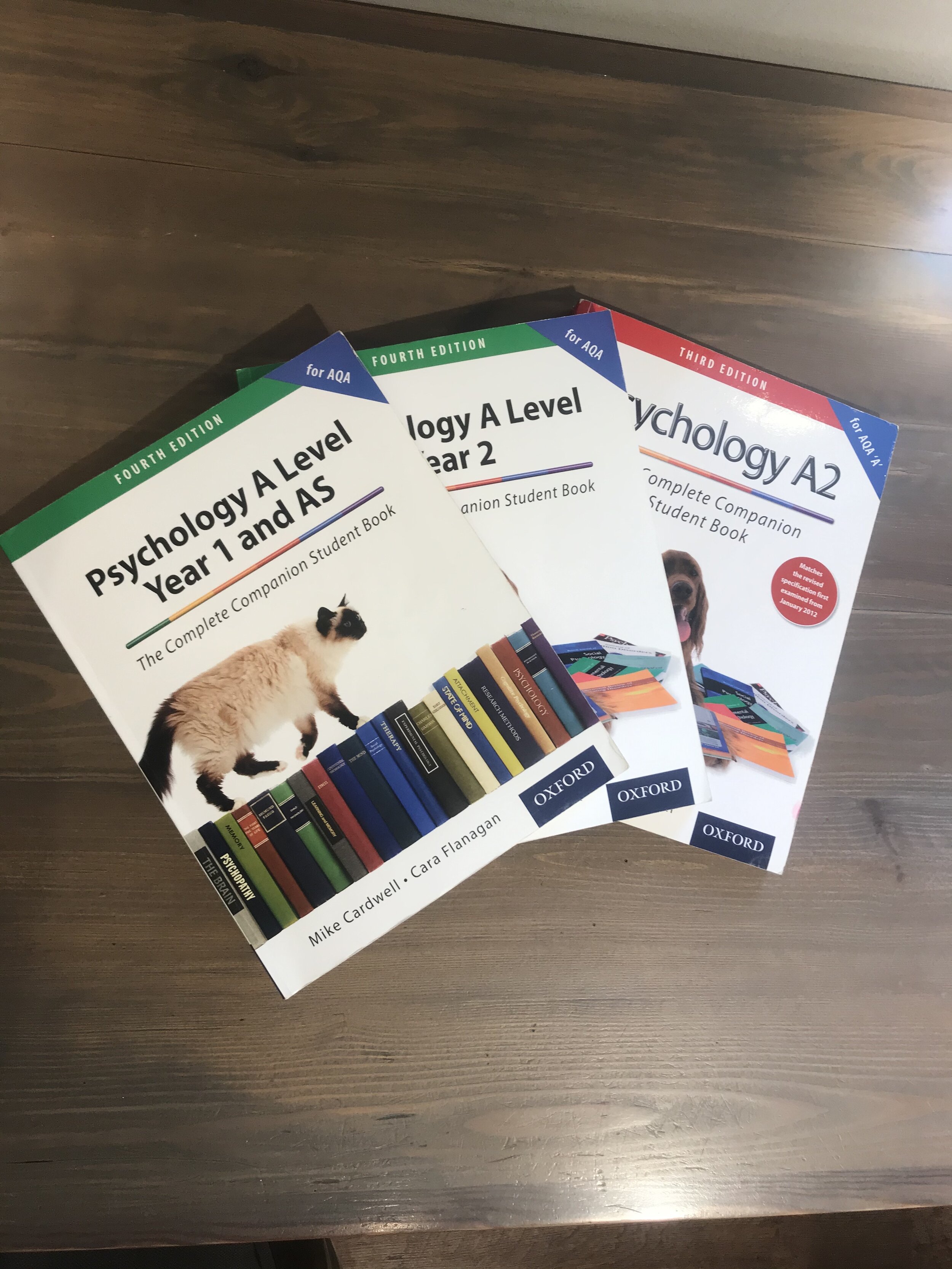Psychology is such a varied and interesting subject; it mainly focuses on people and the human mind. Studying psychology will answer questions you may never have even considered, in an interesting and sometimes totally bonkers way, which most people will relate to in one way or another!
We have spoken to our psychology tutor, Erin, about teaching and studying this subject.
What is A-level psychology like?
The course incorporates lots of different avenues considering human behaviours and interactions, including our memories, relationships and how to classify what actually is 'normal' (spoiler alert - there isn't really one answer, we're all normal in our own unique way!).
What is also so great about this subject is that it incorporates lots of topics that you may have enjoyed during your GCSEs and it allows you to build on these skills to apply them to your everyday life.
It overlaps into other subjects too: maths is a prominent feature of understanding psychological research; some approaches to behaviour involve many aspects of biology so that you can understand human behaviour; understanding how the idea of 'normal' is so varied across cultures is a great way to build on many ideas in humanistic geography too!
What is psychology like at university?
At university, a psychology degree builds nicely on the A-level that you have studied, to give more depth to key theories and ideas. However, whilst doing A-level psychology is useful, it is definitely not essential for studying the subject at university and you can certainly still thrive in your degree without it.
As well as this, studying psychology at university gives you the opportunity to conduct your own research to facilitate your passions. These range from things as simple as why children become attached to their primary carers to how music can impact the way that we feel.
With all of the different strands in psychology, including social, cognitive and biological aspects, studying this subject at degree level also gives you the opportunity to refine your learning in a way that suits you the most. In my final year, for example, I chose modules focusing on psychological theories within education, which pushed my interest in learning difficulties, such as dyslexia and dyspraxia. I also completed a couple of modules focusing on psychology within the criminal justice system, which really helped to continue my love of police dramas! :)
How it can help in the future?
Taking on a subject like psychology not only helps you to understand your own behaviour and how different factors, both innate and in our environment, encourage us to behave the way that we do, it also allows you to have a better understanding of others too. We are all so different, so having an understanding of these differences is an invaluable skill, which I know that I have carried with me continuously.
Psychology can help you in your everyday life - whether that's with tips to help you to remember your shopping list or being a supportive friend during difficult times - and these are skills that are prove helpful in anyone’s future.
The skills that this subject provides can also act as the foundation for so many careers; from counsellors to teachers, detectives to business directors! Most careers dealing with people will build on your psychological skills to develop strong and effective working relationships. So many of these careers also build on key theories in psychology: police officers now use the cognitive interview to interview witnesses of crime, which is built on memory retrieval techniques used in psychological research.
It really is a fascinating subject and one thoroughly worth looking into for A-level or even degree :)



